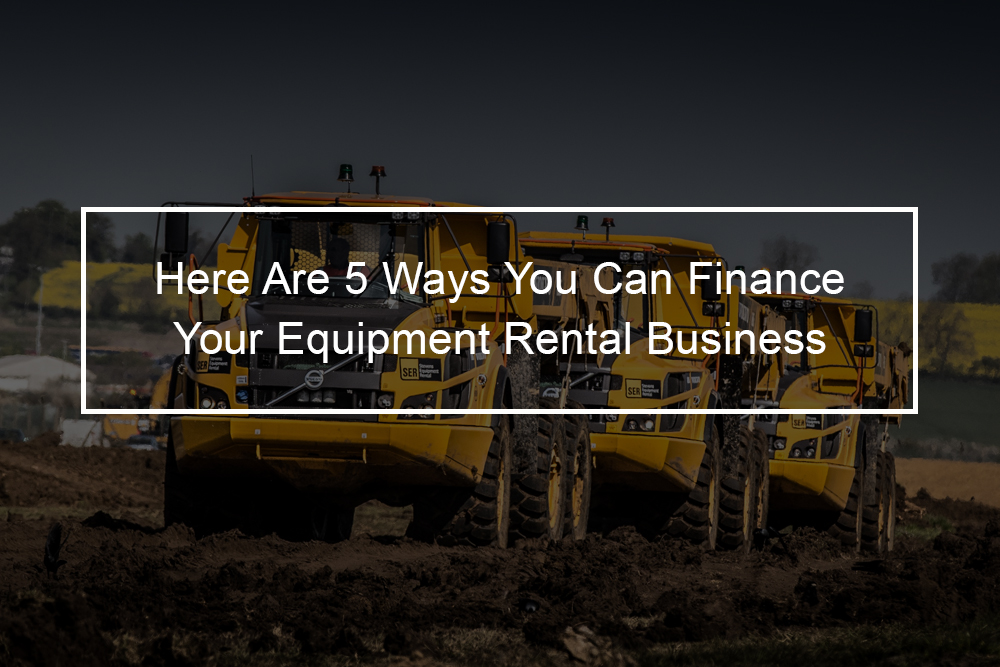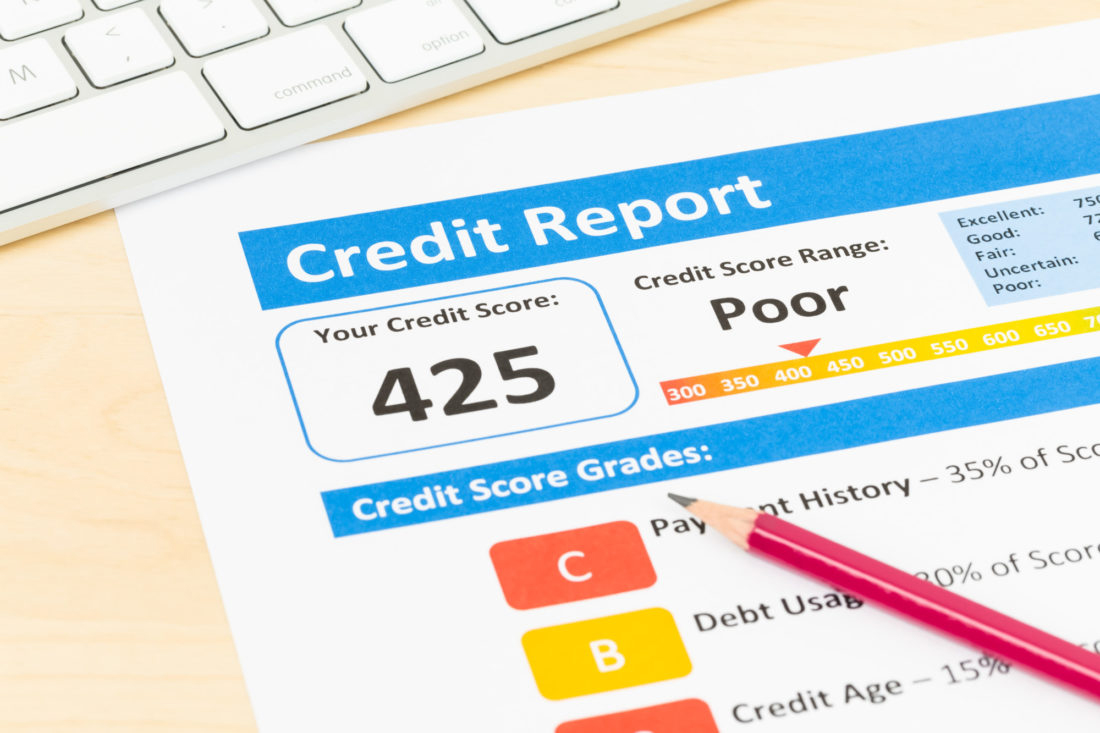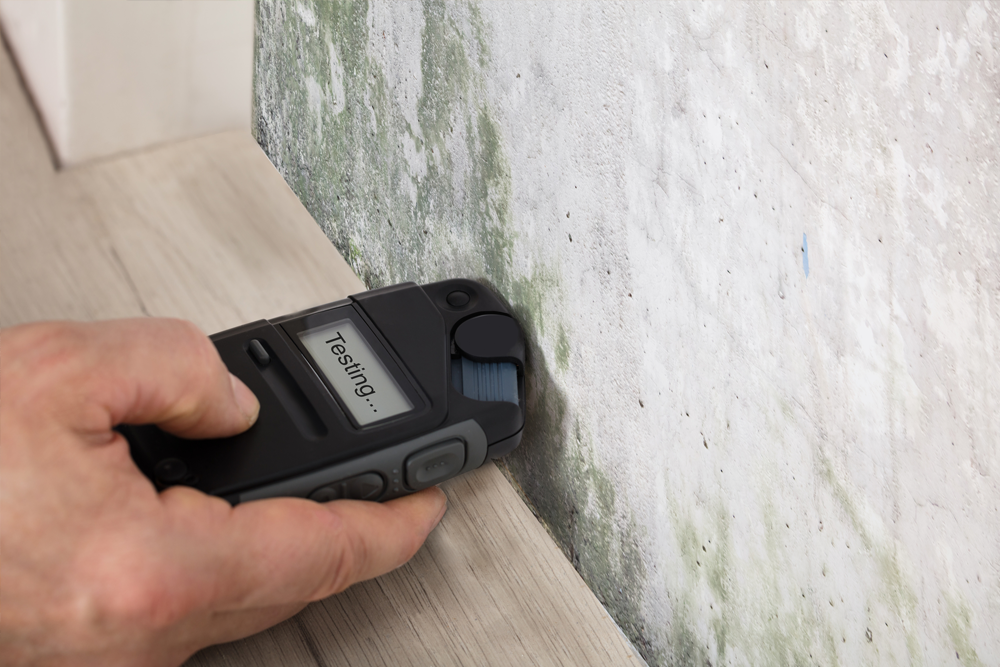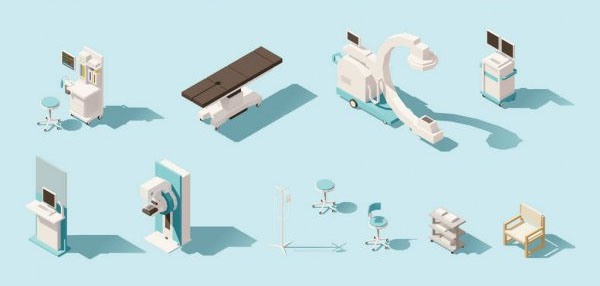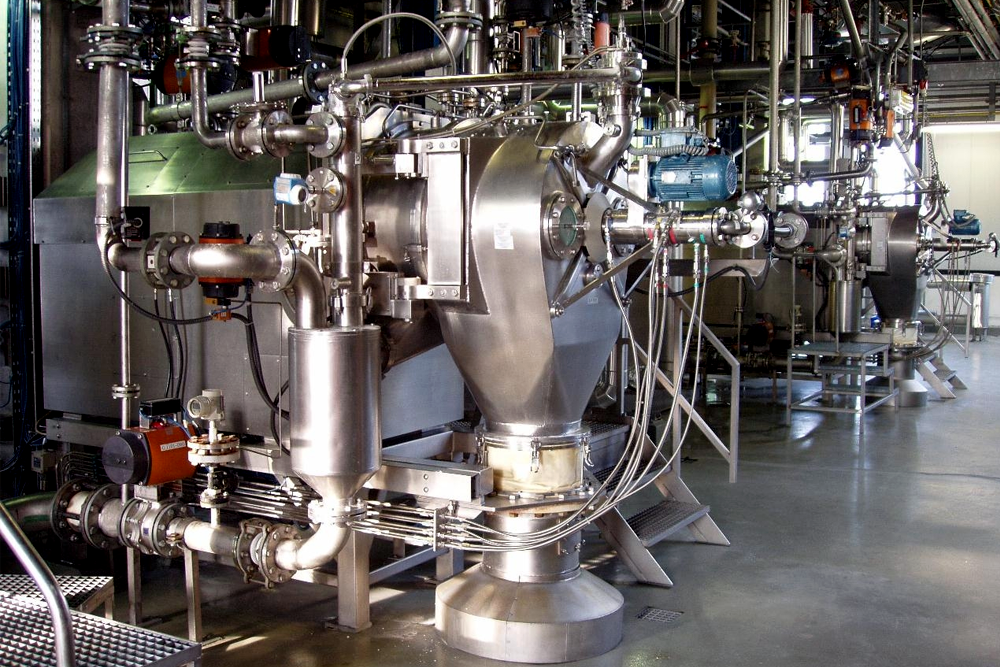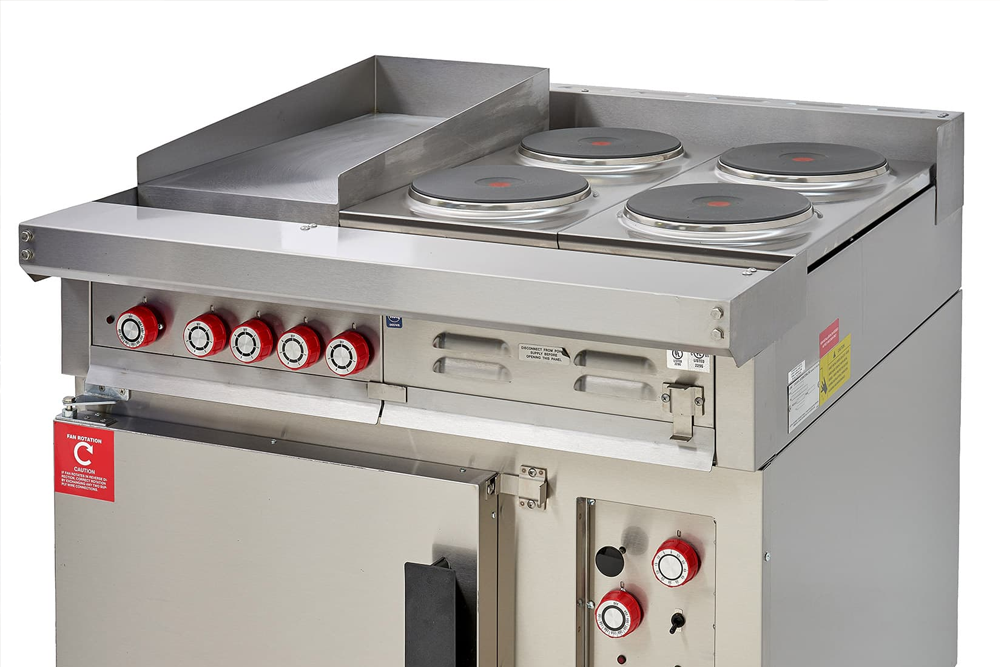The equipment rental companies are faced with a number of unique challenges and among the most critical is the constant need to finance changing inventory. It doesn’t matter if your business is renting: construction equipment; field services equipment; communications equipment; home health care equipment; A/V production and editing equipment; or party tents and tables- you have to maintain an adequate inventory that looks good and works well. To accomplish that, most rental companies need financing resources. That’s where equipment financing comes in. This guide will help you obtain financing for your equipment rental business.
Quick ways to get financing for an equipment rental business
Let’s take a look at where and how you can obtain financing for your rental business.
Term loans for equipment financing
If you need to purchase machinery and equipment for your rental business, a term loan will let you borrow a lump sum of cash and repay the debt over a set period at a variable or fixed interest rate. The fixed repayment schedule linked to term loans can make managing cash flow simpler while balancing other capital needs. Term loans are suitable for purchasing equipment and making other investments because the funds can be utilized beyond the equipment itself. And you still get the basic benefits of term loans: longer repayment terms, reasonable rates, larger funding amounts, and a single, predictable monthly payment.
Term loan features can vary from lender to lender, but generally, these loans provide:
- Borrowing limits up to $500,000
- Interest rates ranging from 7% to 36%
- Repayment terms ranging from 6 months to five years
Moreover, term loans from online lenders can provide fast funding, with the loan proceeds available as fast as the same day your equipment loan is approved. Typically, online lenders and banks will qualify your equipment rental business for a term loan by considering:
- Time in business
- Business and personal credit scores
- Business plan
- Annual revenue
- Balance sheet
- Earnings statement
- Personal and business tax returns
As far as credit rankings go, you can be eligible for short-term loans with a personal FICO score as low as 500. Nevertheless, bear in mind that your credit rating can impact how much you are able to borrow, loan terms, and your interest rate. Typically, the higher your credit ranking, the better your loan terms are likely to be. Choosing the right loan term is vital when financing equipment. Choosing the right term is all about cash flow. You have to be thinking about this for the long and short term, as well as predicting what might be around the corner from an expense perspective. As a business owner, you must weigh a trade-off. On the one hand, a longer loan term will result in lower monthly payments while, on the other hand, a term that exceeds the service life of the equipment will lead to payments still having to be made even after the equipment is no longer of value.
Specialized equipment loans
Equipment loans are just what the name implies: loans exclusively utilized to buy your small business equipment. Online lenders and banks offer these loans. Equipment financing loans are repayable over a fixed term, with terms ranging from one to five years. Generally, the borrowing limits can be as high as $5 million, with interest rates as low as 7.5-percent. Compared with other financing alternatives, equipment loans most closely mirror term loans. With equipment loans, the piece of equipment being bought serves as the collateral. The collateral structure of equipment financing is specifically advantageous since if the borrower can no longer make payments, the financing partner can still get repaid by selling the collateral. This collateral benefit to the lender translates into a benefit to the borrower in terms of a great amount of credit, lower interest rates, longer transaction terms, and other financing methods. Another benefit of collateral-backed equipment loans: You may be able to qualify if you have a lower credit score or a newer business. For instance, you could be approved if you have been in business at least one year, a credit ranking of 650 or higher, and have $50,000 or more in annual revenue. And, in some situations, you might qualify with a credit score below 650 if you can demonstrate positive revenue and solid cash flow.
A business line of credit
Think of a business line of credit is an alternative to equipment loans and conventional term loans, which can be tapped repeatedly. Business lines of credit are revolving debt, indicating you can draw against them as required if you have available credit. Compared with a business loan, a credit line often has a variable instead of a fixed APR. Collateral is not required for unsecured lines of credit. And since they are revolving lines, you have the flexibility of utilizing them to buy equipment or funding other expenses. A business credit line could also be more straightforward to qualify for than a business loan. For example, you may find lenders who will approve you for a credit line with a 500 credit score.
SBA loan guarantees
Some loans for equipment financing might be available with an SBA guarantee. When it comes to a guarantee, the SBA promises to pay back a section of the loan if you can not, lowering the risk for the lender and potentially making loan qualification easier for your equipment rental businesses. The SBA provides several loan programs for small businesses that can assist cover equipment purchases. Those include:
- Microloans
- 7(a) loans
- Certified development company/SBA 504 loans
SBA loans place generous borrowing caps of up to $5.5 million, enabling you to cover large equipment purchases. Based on the type of loan, repayment can be extended up to twenty years. Nonetheless, lenders may set shorter repayment terms and lower maximum loan amounts. SBA loans have particular guidelines you need to meet to be eligible. The main qualifications include:
- Maintain for-profit status. You should own a U.S.-based, for-profit business in an eligible field.
- Meet SBA size standards. Your company should be eligible as a small business depending on the number of staff or revenue.
- Have invested equity. The SBA requires business owners to invest money or time into the business.
- Exhaust your financing options. Companies must show they can’t obtain funds from another lender.
Lenders generally have their own set of qualifications for approval, in addition to basic SBA qualifications. They usually consider criteria, including:
- Personal and business credit scores and reports
- Time in business
- Business and personal income tax returns
- Business plan and financial statements
- Asser valuation
- Business and personal bank statements
Some SBA loans need collateral and might use the equipment to secure the loan. The equipment should be professionally appraised to establish its value as a condition of loan approval. When it comes to timing, SBA loans may not be the fastest business financing option for equipment, since the typical timeline for financing is 60 to 90 days. Another potential shortcoming is the fees you might pay with an SBA loan, including origination fees or guarantee fees of up to 3.75 percent.
What about business credit cards?
Another equipment financing option equipment rental businesses can consider is business credit cards. Applications are generally less time-intensive than some business loans. You can also make excessive use of a zero percent APR introductory period, and you might save money if you are earning cash back, miles, or points or miles on the purchase. However, there are some shortcomings to consider. Credit cards might have higher interest rates than equipment financing loans, and the amount of credit extended to you is often significantly less. Using a credit card is possibly much quicker and easier, and if the amount is small, it might be a reasonable approach. Credit cards and lines of credit are ideal for covering short-term working capital needs. Typically the exception is smaller equipment purchases, such as new computer hardware or software.
Rental equipment financing with bad credit
Finding a source of equipment rental finance can be difficult with a low credit score. But it is not impossible. Here are some tips for securing financing when bad credit is holding you back: To demonstrate your company’s financial health, gather statements that detail cash flow to the company, and compile projections of its future financial standing. Lenders need to evaluate the level of risk your business poses before deciding whether or not to extend a loan. Having a track record of steady, positive cash flows is one way to alleviate bad credit effects in lenders’ eyes. Moreover, explore a range of options before settling on a specific lender. You should not feel tied down to one company, even when options are limited. In reality, some reputable lenders may help you despite your bad credit score. A word of warning— be on alert for predatory lenders. It is crucial to assess the policies and terms lenders offer. If the lender charges upfront fees to “process and ensure” your loan, this is a red flag showing the company is likely an unreliable source. Also, learn about common fees associated with rental equipment loans, so you know what to expect.

